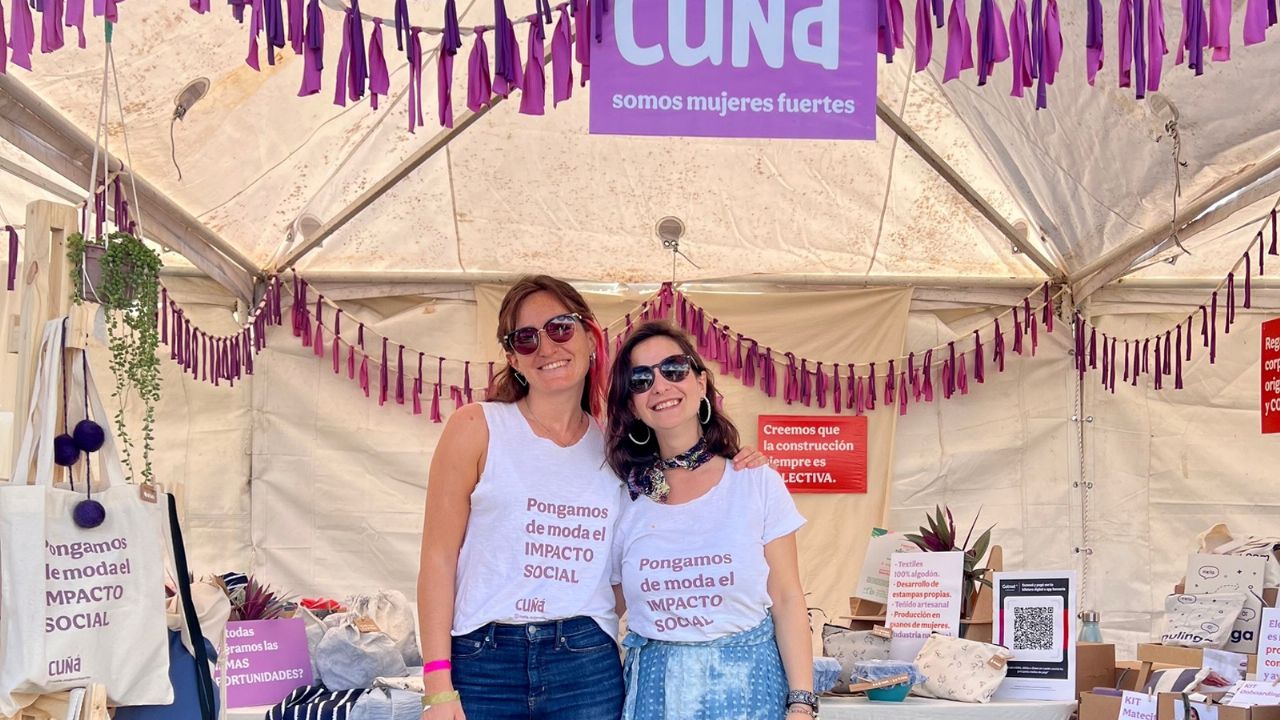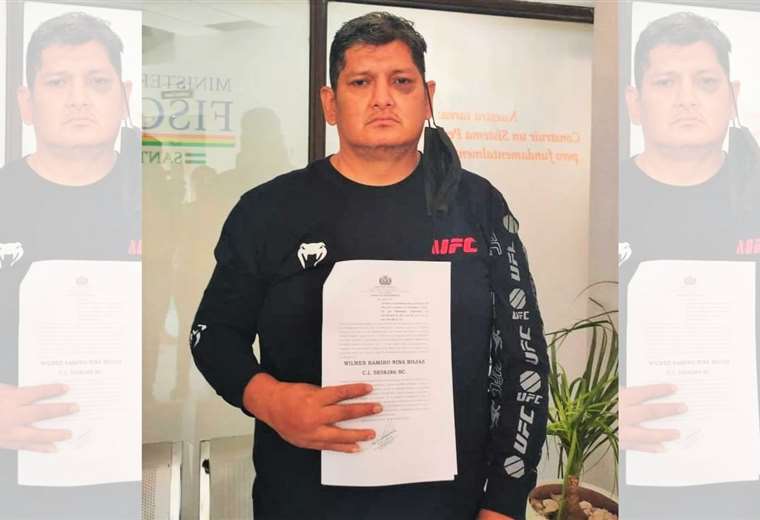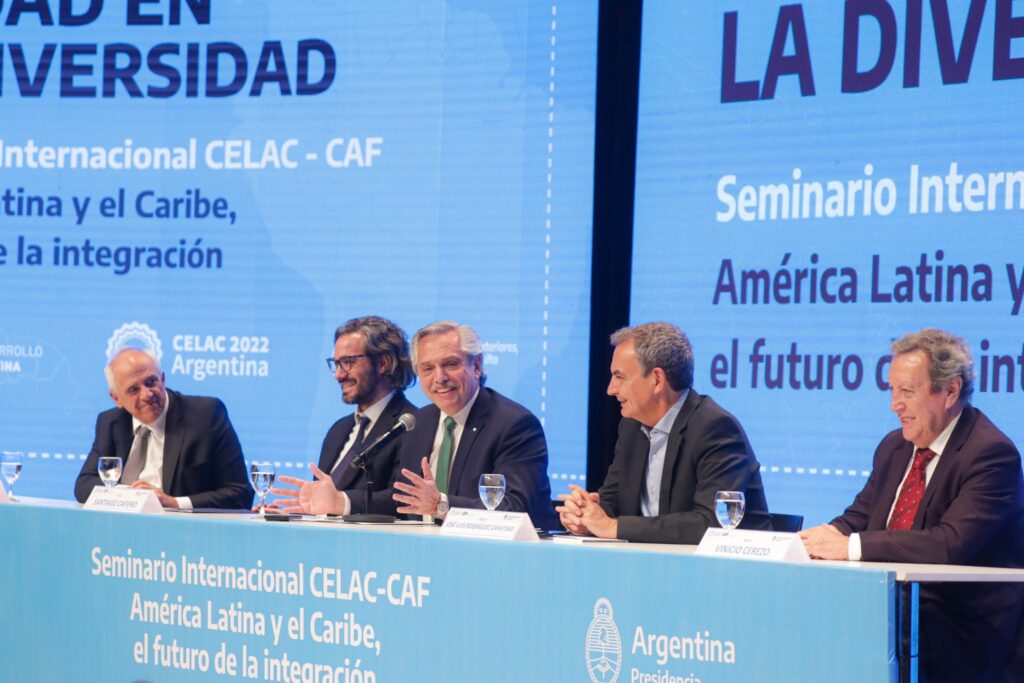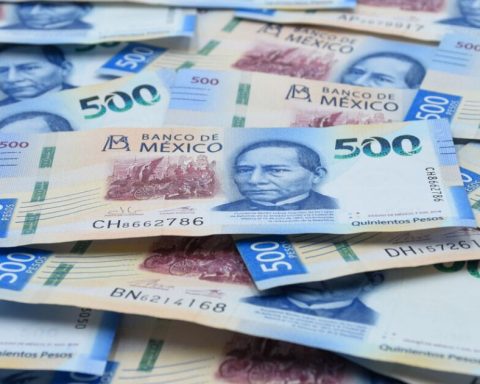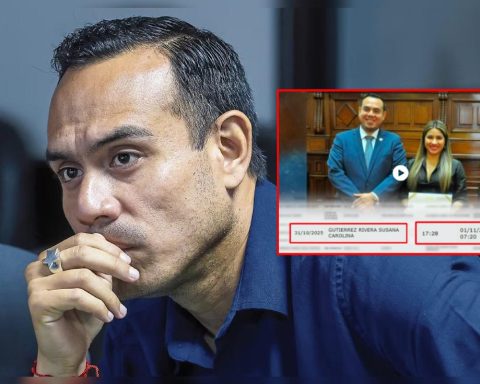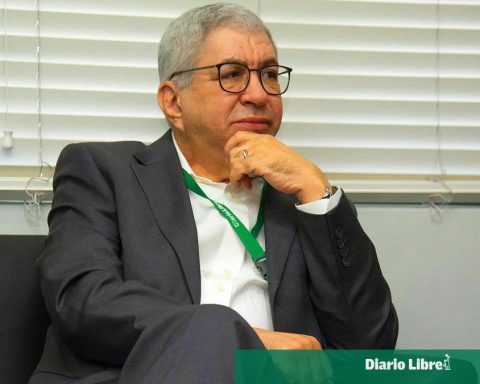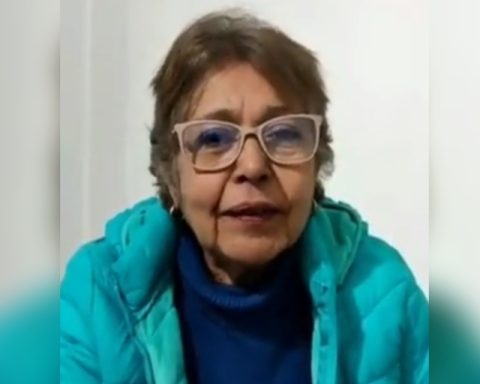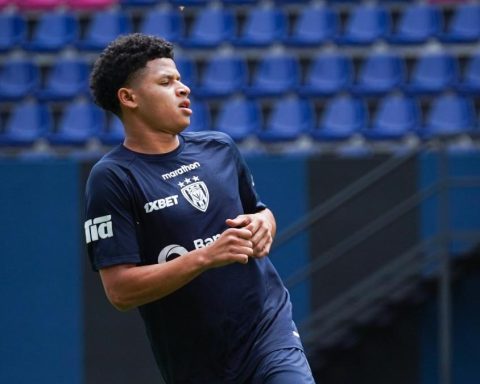Cradle is a network that trains, accompanies and employs women in vulnerable contexts in Barrio Nuevo, Merlo, province of Buenos Aires, and was created seven years ago by Victoria Alcantara (clothing designer) and Agustina Irueta (industrial engineer), who , in an exclusive interview for this newspaper, told us about the scope of his undertaking.
Although this Project was born with the purpose of generating work for women in this neighborhood, little by little Cradle It grew and has not only managed to consolidate itself, but has also become a community, a social space created by and for women, where they find support and new life opportunities.
Therefore, during these seven years of work, the founders of Cradle They have endeavored to generate not only labor inclusion but also to provide decent work to each of the women who have joined this initiative..
Although in the beginning they started only with the textile training area, currently, they also have another line of services focused on the design of corporate gifts, through which they offer companies the opportunity to give their employees unique products, made by artisans. , entrepreneurs and women of the network Cradlesince part of its mission is to expand its work, but, above all, to give work to more women.
Agustina says that, when they began to shape this beautiful project, they wanted, on the one hand, to offer better working conditions through the textile industry, since this was the focus of the company, and, on the other, to give the possibility to women from Barrio Nuevo to work, which, in addition to offering them a better quality of life and another opportunity, also allows them to be more independent.
This, since, in many cases, the women who are part of the organization have been or are victims of violence, so having financial independence gives them the possibility of empowering themselves and getting ahead.

For this reason, and not in vain, the organization has its name, since Cradle comes from “Kuñá Mbareté”, which means “Strong Woman” in Guaraníwhich, in addition to being its identity, has become the banner of its struggle to give women a space where personal and work development is promoted.
Through their different lines of work, they manage to connect, as Agustina refers in dialogue for this newspaper, “the knowledge of craftsmanship, of the manual”, with the new market trends (such as corporate gifts), with a touch of authenticity: the sustainability of its products.

This, since every day more companies are concerned about being more sustainable and generating a lower environmental impact, so products that are friendly to the environment, in addition to being a trend, are an excellent option to encourage and promote this type of proposal. within their own organizations.
Thus, Cradle developed a line of corporate gifts with products that are made by the network of women with whom they work and other enterprises that have joined this community. Through this work, they ensure that the companies that buy their kits generate a real social and environmental impact.

Additionally, they carry out merchandising for different enterprises or small businesses, where they personalize canvas bags, backpacks and other items that are manufactured with national and sustainable products with the logo or stamp of the organization.
Although they began to provide this service since last year, every day there are more companies that join, both to support their work, and with the purpose of generating greater sustainability in favor of planet earth and decent work, because not in vain their motto is “Let’s make social impact fashionable”.
Through this phrase, which has been a flag for the organization, they seek that, just as they were concerned about generating a social impact, others would also do so, since, currently, the global trend is more aimed at promoting an environmental impact, when the social, is not only linked to it, but it is just as important and urgent to address in society.
In this sense, Agustina emphasizes that, for example, it is important that “we ask ourselves under what circumstances the clothes we are wearing were produced, what were the working conditions that person had” who made them, among many factors that influence so that there really is a generation of decent work, “because we have to rethink the standards we have” in this regard.

But Cradle not only does it speak of “making social impact fashionable”, but it promotes and generates it, since, throughout its work, it has managed to train more than 80 women in the trade of textile manufacturing; In addition, they have generated direct jobs for several women within the organization, all with self-managed resources; this, added to the indirect jobs that are generated with other enterprises.
But, beyond the numbers, to the organizationthe most important thing is to achieve a transformation in each of the women and their families who, indirectly or indirectly, have been linked to this initiative.

“We believe that the impact we generate on the people who are part of Cradle It is very deep. Yes Cradle will cease to exist, the same change remains in people; they have the resources to work, they learned to work, they learned the trade and they have a work culture”.
Likewise, through their network they have managed to empower women themselves “and each one feels valuable, realizes that she can and is encouraged to do new things; that she can choose what to do”, because by having their own income they can make other decisions regarding their lives and that of their families.
Although they recognize that women are not the only vulnerable population that exists, they consider that they have fewer opportunities, both educational and labor, because, as Agustina assures, “women are much more affected by poverty, because the care tasks always fall on them”, even, “resigning their personal life, their job opportunities”.
This, added to the fact that, in this population, there are high levels of gender-based violence, both physical and psychological, which is closely linked to economics, since, not having their own income, many times, women are conditioned to do what that their partners or other people have and impose, which is why, from their organization, they seek to contribute to reducing this inequality gap.

In this regard, the engineer points out that one of the most beautiful things about this undertaking is that it has been a project conceived from the neighborhood, which over time has been built and consolidated with the support of all, which in turn It has allowed us to recognize their needs and realities.
As in all projects, they have had many people who, just as they have come and gone temporarily, others have remained. This has also led to the opening of other spaces for support and accompaniment, such as training or gender workshops, which are aimed at the entire community. In addition, they have a support network with social workers and psychologists for specific cases that require it.

Thanks to the social fabric that they have been able to build and consolidate through this network, today, the women who know Cradle they invite others to be trained, trained or simply know what it is about the project and so, like them, they also find a space for listening, solidarity, accompaniment and empowerment.
And it is for this reason, for the possibility of helping more women and further strengthening this network, that They work every day to grow and reach more people, as there are still many gaps, including both gender and access to resources.
For this reason, as founders, they are convinced that today more than ever they want to commit all their effort and time to generate a social impact and promote other life opportunities for other people. For this reason, they have not stopped asking themselves what they can do so that others have those opportunities.
In turn, they seek, why not, to inspire others to also promote this type of projects that are sustainable and sustainable over time and, as well as Cradletransform more life stories and touch more people so that, in Argentina and in the world, decent work, sustainability and social impact become fashionable.
